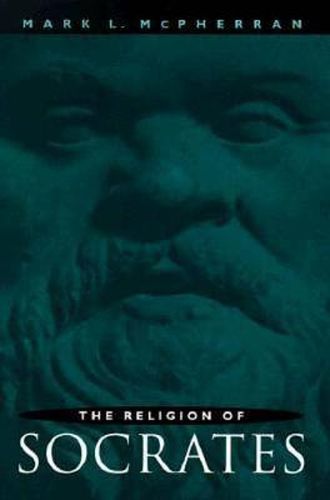Readings Newsletter
Become a Readings Member to make your shopping experience even easier.
Sign in or sign up for free!
You’re not far away from qualifying for FREE standard shipping within Australia
You’ve qualified for FREE standard shipping within Australia
The cart is loading…






This study argues that to understand Socrates we must uncover and analyze his religious views, since his philosophical and religious views are part of one seamless whole. Mark McPherran provides a close analysis of the relevant Socratic texts, an analysis that yields a comprehensive and original account of Socrates’ commitments to religion (e.g., the nature of the gods, the immortality of the soul).
McPherran finds that Socrates was not only a rational philosopher of the first rank, but a figure with a profoundly religious nature as well, believing in the existence of gods vastly superior to ourselves in power and wisdom and sharing other traditional religious commitments with his contemporaries. However, Socrates was just as much a sensitive critic and rational reformer of both the religious tradition he inherited and the new cultic incursions he encountered. McPherran contends that Socrates saw his religious commitments as integral to his philosophical mission of moral examination and, in turn, used the rationally derived convictions underlying that mission to reshape the religious conventions of his time. As a result, Socrates made important contributions to the rational reformation of Greek religion, contributions that incited and informed the theology of his brilliant pupil, Plato.
$9.00 standard shipping within Australia
FREE standard shipping within Australia for orders over $100.00
Express & International shipping calculated at checkout
This study argues that to understand Socrates we must uncover and analyze his religious views, since his philosophical and religious views are part of one seamless whole. Mark McPherran provides a close analysis of the relevant Socratic texts, an analysis that yields a comprehensive and original account of Socrates’ commitments to religion (e.g., the nature of the gods, the immortality of the soul).
McPherran finds that Socrates was not only a rational philosopher of the first rank, but a figure with a profoundly religious nature as well, believing in the existence of gods vastly superior to ourselves in power and wisdom and sharing other traditional religious commitments with his contemporaries. However, Socrates was just as much a sensitive critic and rational reformer of both the religious tradition he inherited and the new cultic incursions he encountered. McPherran contends that Socrates saw his religious commitments as integral to his philosophical mission of moral examination and, in turn, used the rationally derived convictions underlying that mission to reshape the religious conventions of his time. As a result, Socrates made important contributions to the rational reformation of Greek religion, contributions that incited and informed the theology of his brilliant pupil, Plato.